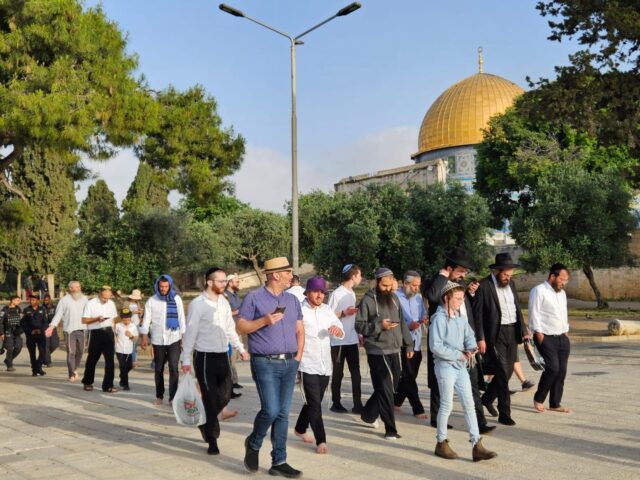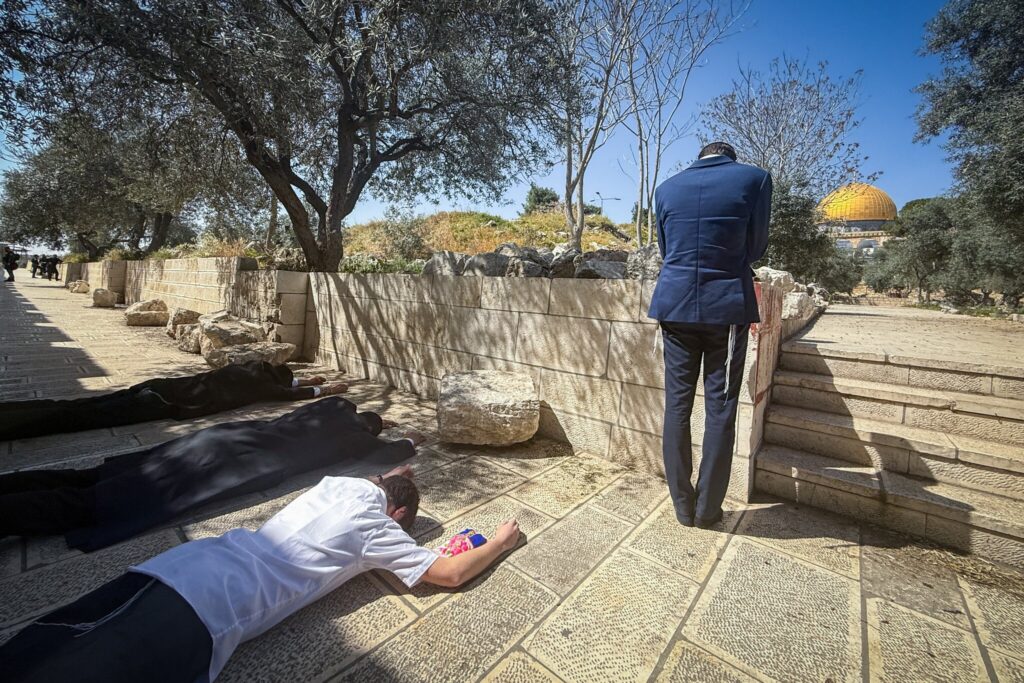
In a landmark shift that signals a continued departure from decades-old religious protocols, Israeli police on Sunday allowed a group of approximately 180 Jewish visitors to ascend the Temple Mount at once, according to a report by Haaretz. Traditionally, Jewish groups permitted on the holy site have been limited to around 30 individuals at a time.
The Temple Mount—known in Islam as Haram al-Sharif—is one of the most contested and sensitive religious sites in the world. While it is the holiest site in Judaism, it is also home to the Al-Aqsa Mosque, the third holiest site in Islam. Since 1967, a fragile status quo has governed access to the site, with the Jordanian Islamic Waqf overseeing its religious administration and Israeli police controlling security. Under this arrangement, Jewish prayer has historically been prohibited on the mount, and Jewish visits have been tightly regulated to avoid inflaming tensions.

However, in recent years, that status quo has gradually shifted. Increasingly, Jewish visitors—often accompanied by right-wing activists and lawmakers—have been permitted more access to the site. Reports have also documented instances of Jewish worship occurring discreetly, a practice once banned outright.
The latest move allowing a group of 180 Jews to enter together marks a significant escalation in that trend.
Police officials, responding to Haaretz, stated:
“We secured visits to the Temple Mount as usual, in accordance with visitation rules and the number of visitors. The number of people allowed in each group is determined based on various circumstances, including the overall number of visitors at the site and, in particular, police’s ability to secure and maintain public order for the group.”
While authorities framed the decision as a logistical consideration rather than a political statement, it has already stirred attention among observers and religious communities. Critics of the move argue that such changes to the site’s management risk exacerbating tensions in Jerusalem and across the broader region, especially during sensitive religious periods.
This development comes at a time of increasing focus on religious freedoms and access to holy sites in Jerusalem, particularly as religious tourism rises and political movements advocate for expanded Jewish prayer rights on the mount.
As debates continue over sovereignty, access, and religious rights at the Temple Mount, Sunday’s event may be remembered as a symbolic turning point—one that could further reshape the delicate balance at the heart of Jerusalem’s most contested ground.



